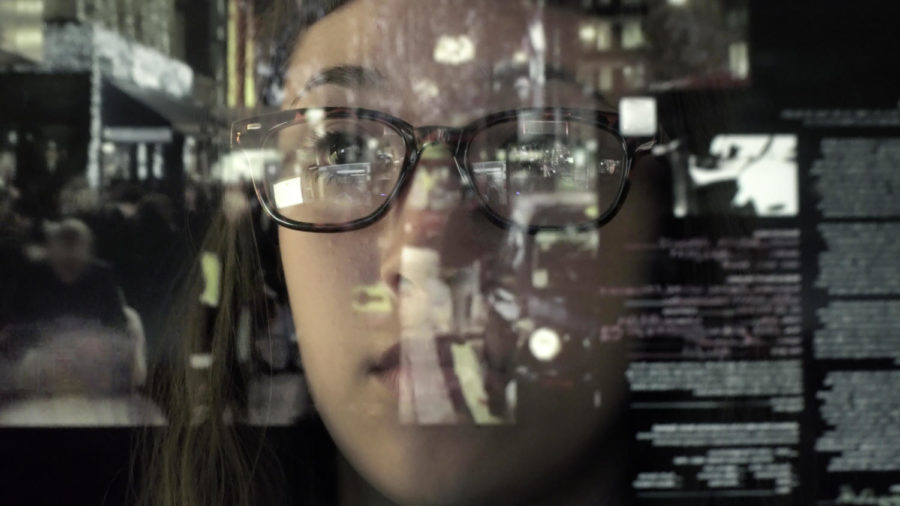Shaw: Defining self concept is important for college students
Photo Courtesy of Getty Images Laurence Dutton
An asian woman concentrating on a touch screen display. The point of view is from behind the screen, looking through the data & images to the woman’s face and hands as she manipulates the windows of information.
August 27, 2018
For many students, moving from high school or another previous form of schooling to college is a big transition. While the freedom and independence is enjoyable for some, others can see it as overwhelming.
Working as a Cyclone Aide for New Student Programs this summer has challenged my perspective of both college students and people in general. In particular, I learned about how incredibly diverse college students are in their backgrounds and upbringings.
People often judge the level of diversity in a university strictly off of statistics on race. In this sense, one might argue that a predominantly white university like Iowa State is not very diverse.
However, diversity is so much more than race. When you consider all the different cities, states and countries students come from, all the different religious affiliations people have and all the different gender identities and sexual orientations people have, Iowa State is clearly a very diverse campus.
It becomes particularly important to keep this diversity in mind when interacting with incoming students — their background or upbringing might largely influence their experience with the college community, and it’s important to be conscious of that so you can find a way to get them connected on campus.
Some people come from homes where they had to hide their identity from their parents. Some people come from communities where they had to mask their identity to fit in.
It blew my mind to think that for some students, college could be the first place that gives people the freedom and or independence to openly express themselves.
I challenge people to look at college life as being more than living broke and mindlessly pursuing a degree. Throughout college we should keep asking and attempting to answer the question: who am I?
It is important to keep building on your understanding of yourself, so get out of your comfort zone and try new things.
In a ScienceDirect article titled, “The shortest path to oneself leads around the world: Living abroad increases self-concept clarity”, Michael Crichton’s book “Travels” is referenced with a quote from the book that reads, “Often I feel I go to some distant region of the world to be reminded of who I really am… Stripped of your ordinary surroundings, your friends, your daily routines… you are forced into direct experience [which] inevitably makes you aware of who it is that is having the experience.”
Personally, I have always struggled with my perception of myself and my identity.
Growing up multiracial I often struggled with impostor syndrome, which is not feeling like I fully identified or belonged with either demographic. I often didn’t know how to define myself to others and felt self-conscious knowing that my identity was different than many of my peers.
However, multiracial people are not the only ones who might struggle with this sort of impostor syndrome.This can also include people who moved a lot growing up and struggle to define where it is they are from.
Each person’s situation is different and we may all have varying levels of confidence in the image we have of ourselves in our head.
Our identities, however, are constantly changing.
It is important to keep searching for answers and establishing who you are. Challenge yourself to get out of your comfort zone. Try studying abroad, joining clubs or trying research.
Self-understanding is important. Invest in yourself.
















